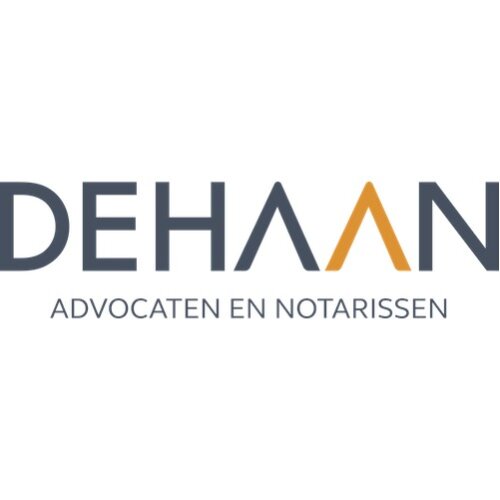Best Inheritance Law Lawyers in Groningen
Share your needs with us, get contacted by law firms.
Free. Takes 2 min.
List of the best lawyers in Groningen, Netherlands
1. About Inheritance Law in Groningen, Netherlands
Inheritance law in the Netherlands is national law that applies uniformly across provinces, including Groningen. A key feature is the role of the notary in many estate matters, especially when real estate is involved or a formal transfer of assets is required. In Groningen, as elsewhere, interpretation of a will or the distribution of an estate often begins with a notarial process, followed by potential disputes in civil courts if heirs disagree.
The field, known locally as “erfrecht” in Dutch, covers wills, intestate succession, and the legitimate claims of heirs. It also governs how assets are distributed when someone dies without leaving a valid will. In Groningen, as in other parts of the Netherlands, the process typically involves gathering assets, identifying heirs, and formalizing transfers via an authentic deed or court order when needed.
Because inheritance matters frequently involve real property, debt settlements, and potential tax obligations, engaging a solicitor or lawyer who specializes in erfrecht can help ensure accuracy and reduce risk. A Groningen attorney or notary can explain your options and help move your case forward methodically, with attention to both regional practices and national law.
2. Why You May Need a Lawyer
- Disputes over a will in Groningen: If heirs argue about interpretation or validity, a lawyer can guide you through challenges, amendments, or negotiations with other heirs.
- Intestacy and estate division with Groningen assets: When there is no will, heirs must follow statutory rules to divide property such as a home or farmland in Groningen. A lawyer helps ensure proper sequence and disclosures.
- Cross-border assets or heirs: If the deceased owned property in Groningen plus assets abroad, a lawyer can coordinate Dutch law with other jurisdictions and handle cross-border succession rules.
- Tax planning and erfbelasting issues: Inheritance tax (erfbelasting) planning can affect the net value heirs finally receive. A lawyer can optimize structures within the law and help with timely filings.
- Trusts, legacies, and business assets: If a family business or farm is part of the estate, specialized advice helps preserve value and comply with Dutch rules for transfers of control.
- Protection for vulnerable beneficiaries: If a beneficiary is a minor or has restricted capacity, a lawyer can help structure protections and ensure proper administration of the estate.
3. Local Laws Overview
The following laws and regulations govern inheritance matters in Groningen and across the Netherlands. They set out how estates are administered, taxed, and transferred.
Burgerlijk Wetboek Boek 4 Erfrecht
Book 4 of the Dutch Civil Code (erfrecht) contains the core rules for succession, testamentary freedom, and the rights of heirs. It covers intestate succession, the effects of wills, and the procedures for claiming an inheritance. This is national law that applies uniformly in Groningen. Key concept: testament and legal share are central to how assets pass on.
Successiewet 1956 (Erfbelasting)
The Successiewet governs inheritance tax (erfbelasting) and is the framework used to tax inherited assets. Tax rates and exemptions depend on the relationship to the deceased and the value of the estate. In Groningen, as elsewhere in the Netherlands, tax planning is often a significant part of settlement strategies.
Regulation on cross-border successions (EU Regulation 650/2012)
For estates with assets or heirs across borders, cross-border succession is governed by European Regulation 650/2012. This regulation determines jurisdiction, applicable law, and recognition of documents in international inheritances. It is particularly relevant for Groningen residents with foreign real estate or beneficiaries abroad.
Source note: Netherlands inheritance matters are shaped by national codes and European guidance for cross-border cases. See official sources for details.
Recent trends in Groningen align with national updates to the erfrecht framework, including harmonization of rules for wills, legacies, and cross-border elements. Always consult an experienced Groningen lawyer to interpret the latest rules as they apply to your estate.
For authoritative explanations and official guidance, you can consult government resources and judicial explanations on inheritance topics. The Netherlands maintains official guidance on erfrecht and taxation through key agencies and courts.
Selected official resources provide detailed explanations of these laws and their practical application in Groningen and the broader Netherlands:
Rijksoverheid (official government guidance on erfrecht): Erfrecht - Rijksoverheid
Belastingdienst (inheritance tax information and obligations): Erfbelasting - Belastingdienst
Rechtspraak (explanation and guidance on erfrecht): Erfrecht - Rechtspraak
4. Frequently Asked Questions
What is erfrecht and what cases does it cover? Erfrecht governs wills, intestate succession, and the transfer of assets after death. It sets who inherits and how debts are settled.
How do I start a probate case in Groningen? Start by gathering death certificate, will, and asset list. Contact a Groningen notary or advocaat to file the initial papers with the court if needed.
When does erfbelasting become payable and who pays? Erfbelasting is due by beneficiaries based on the value received and their relationship to the deceased. The Belastingdienst administers the tax.
Where do I file for a Verklaring van Erfrecht in Groningen? A Verklaring van Erfrecht is typically issued by a Dutch court or notary when necessary for asset transfers in Groningen.
Why should I hire a Groningen inheritance lawyer? A local specialist understands regional property issues, such as Groningen real estate, and can coordinate with notaries and courts efficiently.
Can a will be contested in Groningen and how? Yes, a will can be challenged on grounds like fraud, undue influence, or invalid execution. A lawyer guides objections and evidence collection.
Should I use a notary or a lawyer for probate? Notaries handle many authentic deeds and asset transfers; lawyers provide broader dispute resolution, tax planning, and litigation support.
Do I need a will to avoid intestate succession? A valid will helps control asset distribution, but intestate rules still apply to portions not covered by the will.
Is cross-border inheritance relevant if assets are outside the Netherlands? Yes, cross-border rules can determine jurisdiction, applicable law, and recognition of documents across countries.
What is the typical cost of hiring an inheritance lawyer in Groningen? Costs vary by complexity and firm, but expect consultation fees, hourly rates, and possible flat fees for clear matters.
How long does a typical inheritance process take in the Netherlands? Simple cases with a clear will may complete in a few months; complex matters can extend to a year or more.
What is the difference between a will and a testament in Dutch law? In Dutch practice, a will (testament) is a formal document outlining asset distribution after death.
5. Additional Resources
- Rijksoverheid - Erfrecht Official information on Dutch inheritance law and related procedures. Visit
- Belastingdienst - Erfbelasting Details on taxation of inheritances and required filings. Visit
- Rechtspraak - Erfrecht Explanations and guidance about inheritance law from the Dutch judiciary. Visit
6. Next Steps
- Define your objective Write down what you want to achieve, such as contesting a will or arranging a smooth transfer of assets. Do this within 1 week of learning about the issue.
- Assemble key documents Gather the death certificate, will or testament, inventory of assets, debts, and contact details of all heirs. Complete within 2 weeks.
- Identify Groningen based professionals Search for a local erfrecht solicitor or notary (advocaat or notaris) with Groningen experience. Schedule initial outreach within 2-3 weeks.
- Request a preliminary consultation Discuss your case, options, and a rough cost estimate. Allow 30-60 minutes per session and confirm availability.
- Review engagement terms Obtain a written fee proposal, preferred billing method (hourly or flat), and a scope of work. Decide within 1 week of the consultation.
- Decide on a strategy With your attorney, choose between settlement negotiations, mediation, or court action. Establish a realistic timeline.
- Proceed with formal actions File any required petitions or deeds with the court or notary. Expect an initial phase of 4-8 weeks for setup.
Lawzana helps you find the best lawyers and law firms in Groningen through a curated and pre-screened list of qualified legal professionals. Our platform offers rankings and detailed profiles of attorneys and law firms, allowing you to compare based on practice areas, including Inheritance Law, experience, and client feedback.
Each profile includes a description of the firm's areas of practice, client reviews, team members and partners, year of establishment, spoken languages, office locations, contact information, social media presence, and any published articles or resources. Most firms on our platform speak English and are experienced in both local and international legal matters.
Get a quote from top-rated law firms in Groningen, Netherlands — quickly, securely, and without unnecessary hassle.
Disclaimer:
The information provided on this page is for general informational purposes only and does not constitute legal advice. While we strive to ensure the accuracy and relevance of the content, legal information may change over time, and interpretations of the law can vary. You should always consult with a qualified legal professional for advice specific to your situation.
We disclaim all liability for actions taken or not taken based on the content of this page. If you believe any information is incorrect or outdated, please contact us, and we will review and update it where appropriate.









